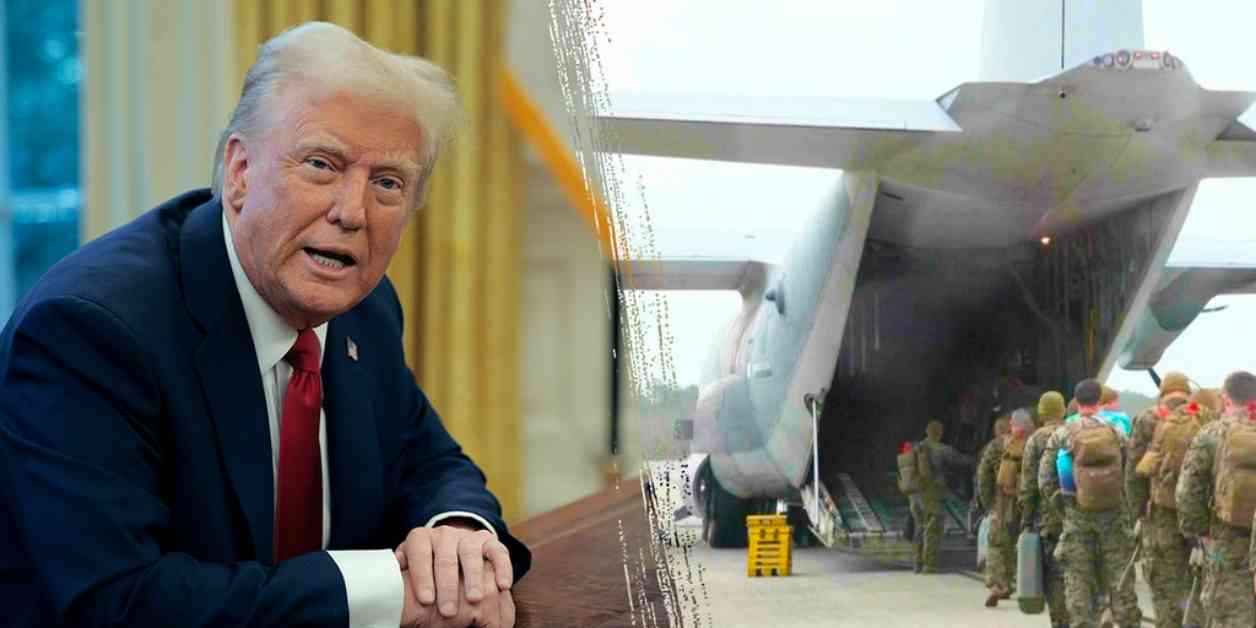A federal court recently intervened to prevent the Trump administration from relocating three Venezuelan immigrants detained in New Mexico to the controversial Guantánamo Bay in Cuba. The move was part of the administration’s strategy to remove illegal immigrants from the United States, sparking legal challenges and public outcry.
Lawyers representing the trio argued that they were wrongfully targeted for detention in Guantánamo, citing false allegations of ties to criminal organizations. The legal team swiftly filed for a temporary restraining order in a U.S. District Court in New Mexico to halt the transfer, emphasizing the importance of legal process and counsel access for the detainees.
The court’s decision to grant the temporary restraining order was a pivotal moment in the ongoing legal battle. Jessica Vosburgh, one of the attorneys representing the three men, expressed cautious optimism about the ruling, highlighting the need for further legal proceedings to fully address the issue.
The lawsuit was initiated by prominent organizations such as the Center for Constitutional Rights, the American Civil Liberties Union of New Mexico, and the Las Americas Immigrant Advisory Center. The involvement of these groups underscored the significance of the case in challenging the administration’s immigration policies and defending the rights of vulnerable populations.
Controversy Surrounding Guantánamo Bay
The use of Guantánamo Bay as a detention facility for immigrants has sparked widespread debate and criticism. Immigrant rights groups have condemned the base as a “legal black hole” due to its history of human rights abuses and controversial interrogation practices.
The decision to send detained immigrants to Guantánamo has raised concerns about their treatment and legal status. The base, originally established to house terrorism suspects in the aftermath of 9/11, has come under scrutiny for its conditions and lack of transparency regarding detainees’ rights.
The expansion of the detention camp to accommodate a larger number of immigrants, as announced by the Trump administration, has fueled fears about the mass incarceration of individuals without due process. The implications of this policy shift on the immigrant community and broader human rights issues remain a subject of ongoing debate and legal action.
Challenges in Immigration Enforcement
Homeland Security Secretary Kristi Noem and White House press secretary Karoline Leavitt’s statements regarding the transportation of detained immigrants to Guantánamo have further escalated tensions. The lack of clarity surrounding the detainees’ legal status and access to legal representation has heightened concerns about their treatment and rights.
The administration’s aggressive approach to immigration enforcement, including the detention and deportation of thousands of individuals, has triggered a wave of apprehension and uncertainty within immigrant communities. The conflicting reports of arrests and releases have underscored the complexities and challenges of immigration policy implementation.
As the legal battle over the fate of the three Venezuelan immigrants continues, the broader implications of the administration’s immigration policies are coming under increased scrutiny. The intersection of national security concerns, human rights considerations, and legal challenges is shaping the discourse on immigration reform and enforcement in the United States.
The Associated Press provided valuable insights and contributions to this report, shedding light on the multifaceted issues surrounding immigration and national security. The ongoing developments in the legal case and policy debates underscore the importance of upholding due process and human rights in addressing complex immigration challenges.


